French Event Organizer Françoise Dumas Reflects on Life as ‘Mistress of Ceremonies’
- Oops!Something went wrong.Please try again later.
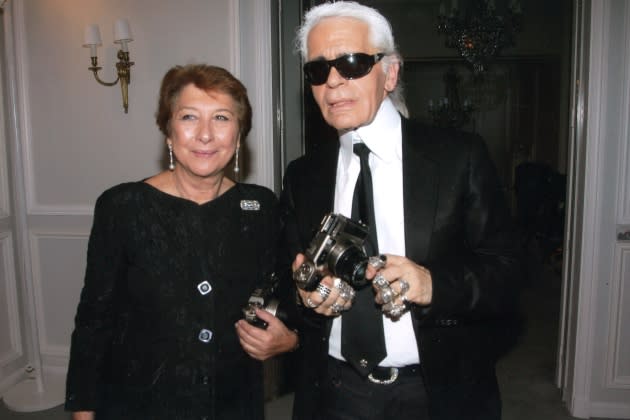
For more than four decades, Françoise Dumas was swept up in a whirl of charity galas, luxury launches and state dinners. Then the coronavirus pandemic hit, and the event organizer’s professional activity came screeching to a halt.
Dumas was at her holiday home in Comporta, Portugal, when the first lockdowns were announced and decided to remain there instead of returning to Paris, France.
More from WWD
The forced break allowed her to take stock and write a book, “Mistress of Ceremonies,” recently published in French by Grasset, in which she recounts the parties she’s planned for luminaries like luxury magnate Bernard Arnault, designer Karl Lagerfeld, Princess Caroline of Monaco and former presidential couple Jacques and Bernadette Chirac.
Now Dumas is back in action, with events like the annual Société des Amis du Musée d’Orsay gala dinner, but she reckons the world will never be the same again.
“I’m at a turning point in my life, but it’s not just due to my age. I think we’re at a turning point in society too, aren’t we?” she says tentatively over a cappuccino at the Ritz hotel in Paris. “It’s strange, very strange. I really feel like things are completely changing. But I’m not the person to organize Zoom dinners in the metaverse. I prefer living matter.”
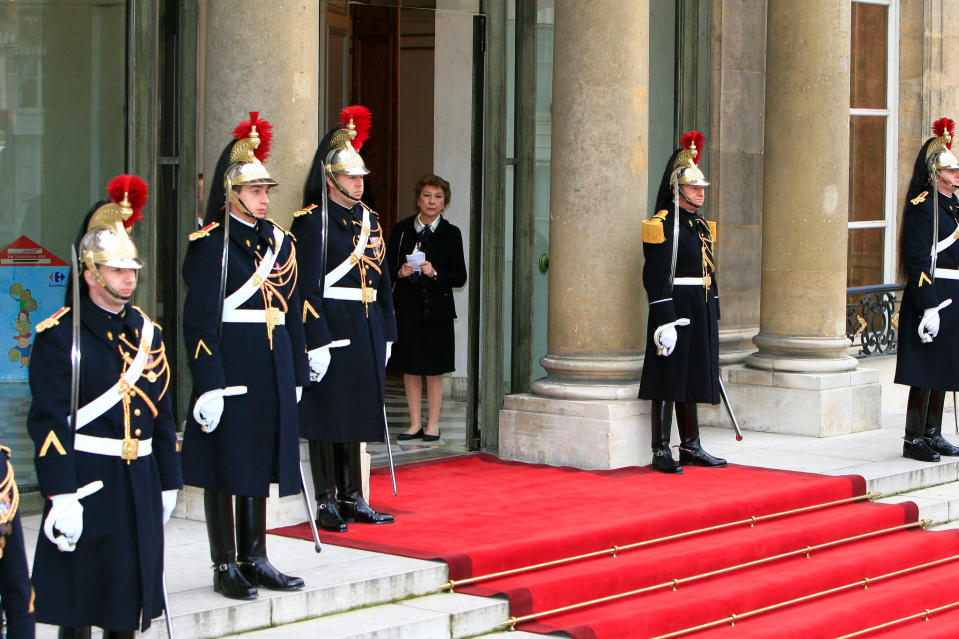
Dumas could be forgiven for thinking she’s part of a dying breed. There’s only a handful of great society hostesses left in Paris, including her friend Countess Jacqueline de Ribes, Sisley cofounder Countess Isabelle d’Ornano and Hélène David-Weill, all of whom belong to a generation well-versed in the codes of entertaining à la française.
“I wonder if the young generations will be as interested in this traditional art of living,” ponders Dumas, whose book details the arcane rules for hosts and guests, from the court of King Louis XIV to the present day (who knew that a dinner napkin should always be folded in half before being placed on your lap?).
“I wanted to recall certain rules that I feel are important for a pleasant and courteous life,” she says in her signature affable delivery. “I feel that you can’t just do as you please.”
Dumas has always been drawn to the social whirl. Born in 1939, she spent her early years in the Loire region, largely shielded from the effects of World War II. As a child, she developed a passion for history, through regular visits to the area’s famous castles, and practiced organizing receptions with her doll’s tea set.

Her imagination was fueled by fantasies of the great masked balls hosted by the likes of Étienne de Beaumont, Alexis de Redé and Carlos de Beistegui in the 1920s and 1930s. By the time Dumas started working for event organizers in the ‘60s, however, those socialite gatherings were a distant memory, replaced by buzzy film premieres, like the 1962 party for “The Longest Day,” which culminated with a concert by Edith Piaf on the Eiffel Tower.
Dumas wanted in, but as a junior in the office of Georges Cravenne, the man who launched the Césars ceremony, France’s equivalent to the Oscars, she was relegated to the accounts that nobody else wanted: jewelers, perfumers and fashion designers, who at the time were considered minor clients and disparagingly referred to as “suppliers.”
Little did she know that she was laying the foundations for the agency she would go on to found with her business partner Anne Roustang in 1980. Her first fragrance launch was for Valentino in 1978 and took the shape of a gala for Roland Petit’s new ballet for Mikhail Baryshnikov, followed by dinner at Maxim’s.
“I think it was the first time that the launch of a luxury product was tied to a cultural event and it was a great success,” Dumas recalls.
Her meeting with Arnault came to define a large portion of her career, with Dumas helping the head of luxury group LVMH Moët Hennessy Louis Vuitton to host events, including the blowout launch of Dior’s Dune fragrance in 1991 at the Château de Vaux-le-Vicomte, and the 1996 Met Gala, which Princess Diana attended in John Galliano’s first haute couture design for the French fashion house.

Dumas says legendary WWD boss John B. Fairchild credited her with burnishing the image of Arnault — whose frenzied acquisition of luxury brands in the 1980s and 1990s earned him the nickname “the wolf in a cashmere coat” — by masterminding the gala events he sponsored for charities headed by former French first lady Claude Pompidou and later Madame Chirac.
“Alongside [Arnault’s] conquering or combative side, there was his patronage and support for social or cultural causes,” she says. “When we started working together, I would always say to him, ‘Monsieur, you want to create the world’s largest luxury group. It would be wonderful to perpetuate this French art of living.’ And that’s what he’s done with his brands.”
Dumas also takes credit for popularizing one of Dior’s bestsellers, the Lady Dior handbag.
“This is a true story,” she announces with a smile, going on to explain that Bernadette Chirac asked her to pick a gift from the Dior boutique for the Princess of Wales, who was expected for tea at the Elysée presidential palace during a 1995 visit to France.
“I had noticed a little bag, which at the time was made of fabric, and so I had it wrapped and sent to the Elysée. I phoned Monsieur Arnault to let him know, and he said, ‘Recall the bag immediately.’ Why? Because he was working on a prototype in leather. He had it finished overnight, and the leather version was sent instead,” she says.
Eventually, the bag was so closely associated with Princess Diana, who was still referred to as Lady Diana in France despite her royal title, that it was renamed in her honor.
While Dumas has always sought the company of the great and the good, she is clear on her position in the ecosystem.
“I found my place as an organizer and as a kind of reference, but I never tried to become a great socialite. That was never my intention,” she explains. “I think of people and always try to give them an instant of beauty and happiness. We always try to create moments that will become special memories. That’s really important.”
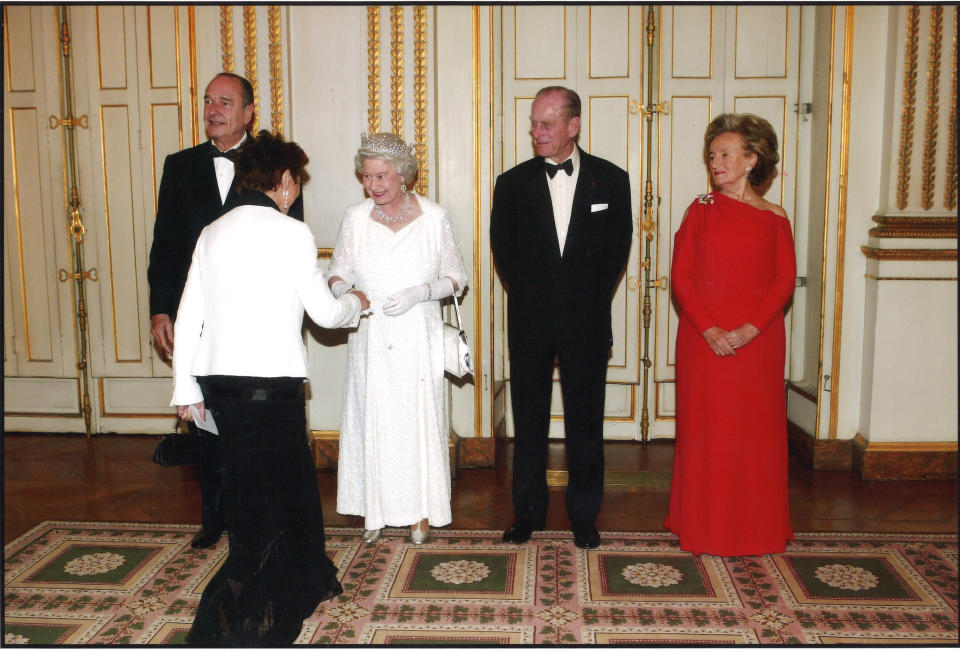
Nonetheless, she admits to being star-struck on at least one occasion: the 2004 state dinner where she met the late Queen Elizabeth II.
“I loved Madame Chirac. I was very close to her and we did a lot of events together, and one day I mentioned that I would be thrilled to attend a state dinner. I thought that she might invite me for a president that would draw a smaller crowd. A few days later, she called and said, ‘Would you like to attend the dinner for the Queen of England?’” she recalls.
Dumas and Roustang dressed in their finery and hit the red carpet. “What was very funny is that we were attending as guests, but once inside the Elysée, people were so used to seeing us there as event organizers that they kept asking us for directions,” she says.
She pulls out a folder of glossy photographs, pointing to the shot where she curtsies for the Queen. “Look at her gaze — she looks at you as if she’s known you forever,” Dumas marvels.
From her 12 years of organizing events at the presidential palace she has gained an unparalleled knowledge of diplomatic etiquette, which she combines with an encyclopedic awareness of the ins and outs of Paris society — though don’t expect her to dish any gossip, beyond some amusing anecdotes about narrowly averted seating disasters.
“We’re like a switchboard, so obviously we’re aware of a lot of things that we’re not at liberty to disclose, but if you want a party to succeed and there is a seated dinner, you’ve got to know how to place guests. That’s one of my favorite parts of the job,” she says. “If you get your seating right, people have a good time.”
Dumas still uses a system of cards — blue for men, pink for women — that she fixes with paper clips, allowing for last-minute reshuffles. “It’s like a battle plan,” she says, dismissing computerized alternatives. “I will never get rid of my cards.”
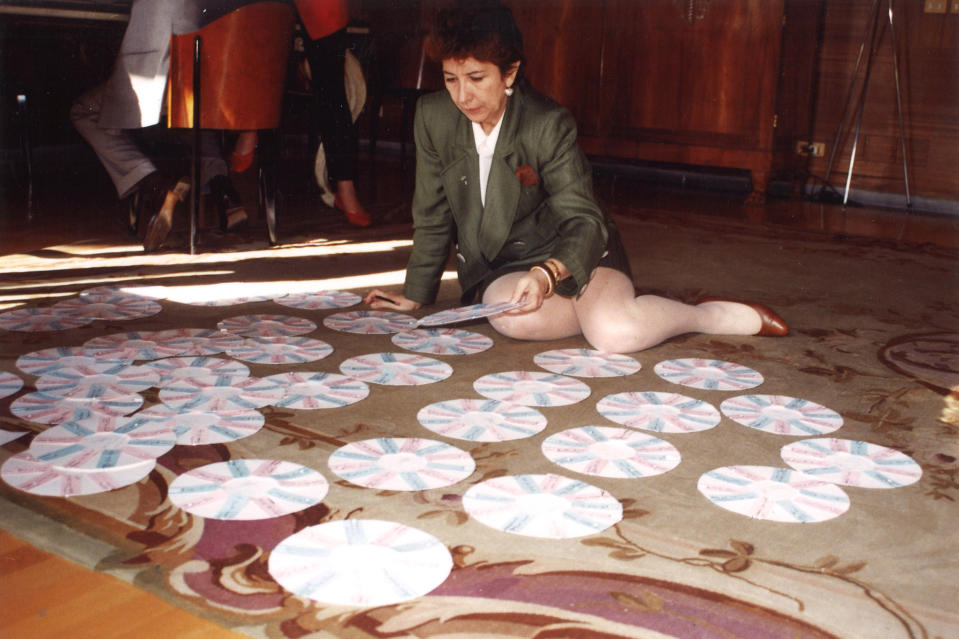
Dumas, who organized the nuptials of Prince Albert II of Monaco and Charlene Wittstock in 2011, is used to directing battalions of chefs, waiters, florists and decorators. “Sometimes there are more people behind the scenes than there are guests, so you really have to treat these events like a big film production,” she says.
She lovingly describes her most spectacular events, held in locations including the Château de Versailles, and the Forbidden City in Beijing.
“When you find yourself all alone in the galleries at Versailles, it’s extraordinary. The first time, I stood in front of the portrait of Louis XIV that is in every French child’s history schoolbook. I was enthralled. It was fascinating. The two great joys of my job are the people and the incredible places that belong to you for a few hours,” she says.
In the aftermath of the pandemic, she’s mulling the future of her agency, Françoise Dumas-Anne Roustang & associés. “I’m going through a bout of soul-searching. I would say that I really loved what I did, and I tried to do it to the best of my ability,” she says.
“I compare it to what Chanel is doing with its Métiers d’Art houses. This is like a métier d’art, and maybe this tradition needs to be modernized, but we need to keep it alive,” Dumas continues. “There are very large event production offices now, because the activity has grown over time, but I don’t think anyone has my experience as a hostess.”
In her bedroom, Dumas keeps a photograph of herself as a little girl. She confides: “I often talk to this little girl and I ask her, ‘Are you happy with what you did?’”
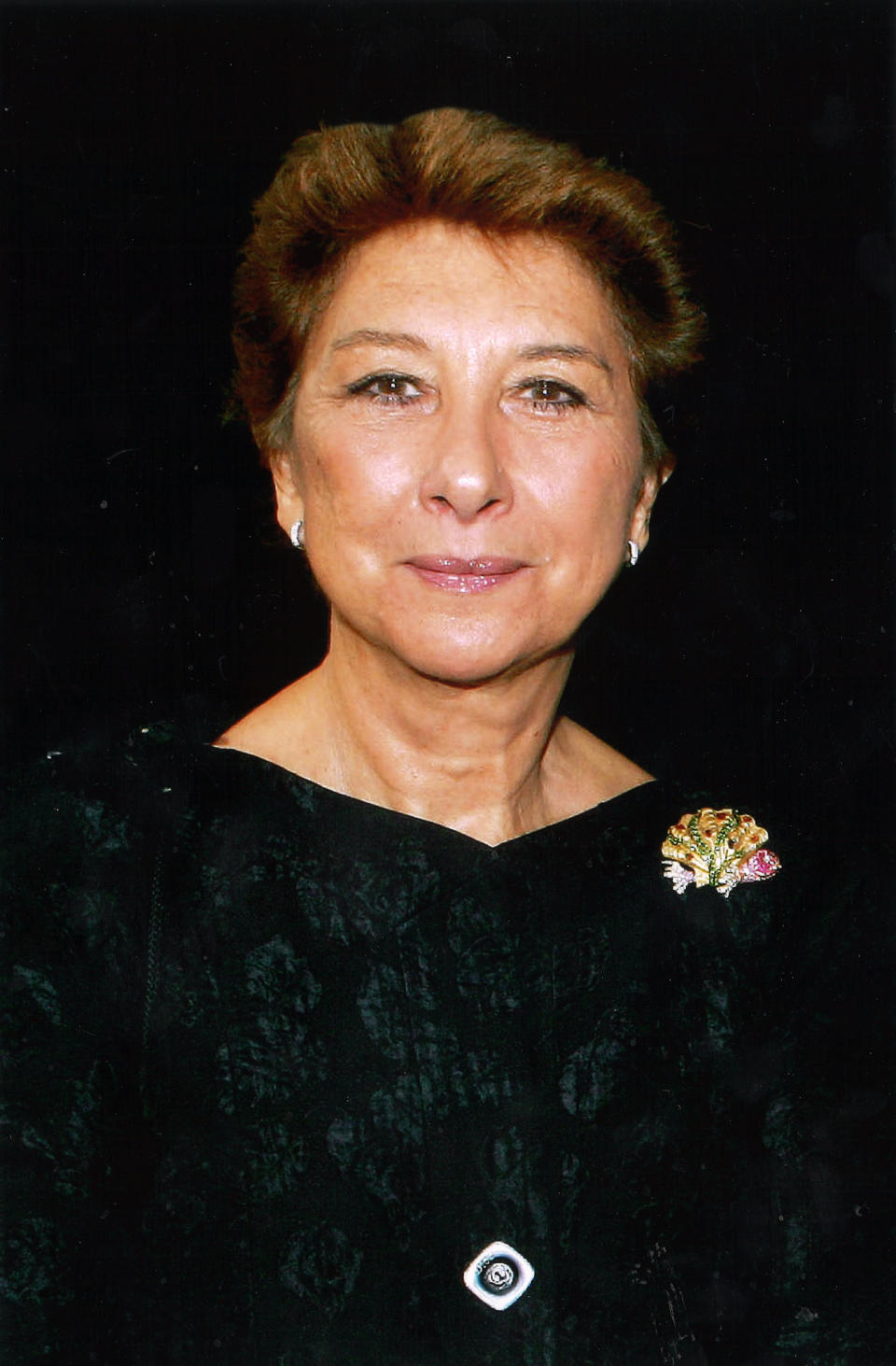
Best of WWD

